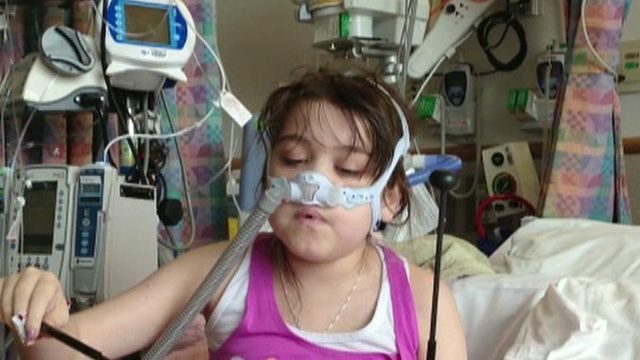Sarah Murnaghan won her chance to get a new lung. After a saga that involved Pennsylvania Senators Pat Toomey (R) and Bob Casey (D), U.S. Secretary of Health and Human Services Kathleen Sebelius, and a federal judge, the 10 year-old girl from Newtown Square, Penn., will receive the lung that she needs to continue her fight against cystic fibrosis.
It’s a sad story, made all the sadder by the fact that Sarah’s parents had to seek out political leaders and public officials to solve a health-care problem that exists, at least in large part, because of federal regulations regarding organ donations.
Some analysts say simple, market-oriented reforms for how the government handles organ donors and recipients would shorten the waiting list for new organs and give more patients a second chance at life.
“Our current system is what forces us into these terrible, tragic choices,” said Sally Satel, a practicing psychiatrist and lecturer at the Yale University School of Medicine.
Story Reveals Systemic Flaws
Without a lung transplant, doctors believed Sarah would have only a few weeks to live. But the federal rules for lung transplants prevent anyone younger than 12 from being placed on the adult list.
Sarah has been on the pediatric transplant list for 18 months, but donations are rare and her condition was worsening. Her parents brought the situation to the attention of Pennsylvania’s congressional delegation, which wrote a letter to Sebelius asking for a temporary change to the rule so Sarah could get a new lung through the adult donation list.
Sebelius refused, unwilling to make an exemption in a longstanding national policy to benefit one person. But a federal judge in Pennsylvania issued a temporary injunction in Sarah’s favor in June, and she was able to be moved to the adult donor list.
Even so, there is no guarantee she will get a donor lung in time. And when one person gets put at the head of the line, another person gets bumped down on the list.
The case reveals several flaws in how the American health care system—and specifically, the organ donor system—operates.
Long Waiting Lists
Satel said Sebelius made the right, though difficult, choice by initially refusing to make the change, since making or changing policy on an ad hoc basis for individuals is a terrible way to deal with a national problem.
With more than 118,000 people on the national waiting list for organ donations, there is no shortage of other Sarahs out there. Instead of making individuals supplicate to elected officials, unelected bureaucrats, or federal judges to get a lifesaving organ transplant, policy changes should be aimed at increasing the supply of donated organs, because that would reduce the waiting list, Satel said.
“The waiting list is the consequence of an altruistic-only donation policy,” she said.
Law Bars Marketplace
Passed in 1984, the National Organ Transplant Act made it a felony to give or receive an organ in return for anything of value—cash, gifts, or anything else—effectively establishing a system of organ donations that depends entirely on the altruism of those making the donations.
In that 1984 federal law, the government gave a monopoly contract to the United Network for Organ Sharing, a nonprofit that operates the nation’s organ transplant list and makes rules determining who gets on the list and how it is ordered.
Vital organs must be taken from a deceased body as soon as possible to be viable as transplants. Yet about 50 percent of all usable organs end up as “food for worms” instead of being put to use keeping someone else alive, said Lloyd Cohen, a professor of law and economics at George Mason University.
He attributes the lack of supply to a failure of incentives in the altruistic-only model.
Those who support the current donor system worry compensating individuals for organs—either during life or after death by paying the next of kin—would open the door to unethical behavior. But Cohen says there are at least as many drawbacks to the current system, which assumes individuals and their loved ones place no value on their organs after they have died.
Open to Compensation
One alternative, according to Cohen, is to offer compensation to potential organ donors and their next of kin, and offer it before they reach the emergency room and an important decision has to be made under great stress, Cohen said.
Most of the Americans waiting for organs—about 75,000 in all—are waiting for kidney transplants. Providing a greater incentive for donations would reduce that figure.
Such incentives do not have to including giving away cash for kidneys, said Satel. She suggests kidney donations would increase if the government offered free college tuition or health insurance in exchange for donations.
“You could walk into the University of Pennsylvania tomorrow and donate a kidney,” Satel said. “But you wouldn’t get anything more than a special place in heaven.”
As for Sarah, she might have a better chance at getting a new lung on the adult waiting list than she did on the under-12 list. But it’s a wait that thousands of others also have to endure, probably unnecessarily.
Eric Boehm ([email protected]) writes for the Pennsylvania Independent, where this column first appeared. Reprinted with permission.




